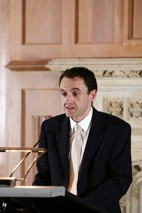Spain: Harsh sentences for Catalan leaders risk ‘chilling effect’ on rights

Colin Harvey
Lengthy prison sentences imposed on nine Catalan pro-independence leaders by the Spanish courts yesterday risk having “a chilling effect on freedom of expression and association”, a human rights expert has warned.
Former Catalan vice president Oriol Junqueras was yesterday sentenced to 13 years in prison, while former ministers Jordi Turull, Raül Romeva and Dolors Bassa have been sentenced to 12 years each.
All four have been found guilty of sedition and misuse of funds in relation to their role in organising a disputed independence referendum in October 2017, which took place in defiance of Spanish court rulings and was marred by scenes of police violence against voters.
Former Catalan parliament speaker Carme Forcadell, former ministers Joaquim Forn and Josep Rull, and leading activists Jordi Sànchez and Jordi Cuixart have also been found guilty of sedition.
Ms Forcadell has been sentenced to 11-and-a-half years in prison, while Mr Forn and Mr Rull have been sentenced to 10-and-a-half years each. Mr Sànchez and Mr Cuixart – prominent civil society leaders – have been sentenced to nine years each.
However, the Supreme Court found there was insufficient evidence to convict any of the nine pro-independence leaders on the more serious charge of rebellion.
After handing down the verdict, the court issued a new European Arrest Warrant for former Catalan president Carles Puigdemont, who is in self-imposed exile in Brussels, Catalan News reports.
There was significant disruption across Catalonia in the immediate aftermath of the ruling as protesters occupied highways, railways and Barcelona airport, FT reports.
Professor Colin Harvey, an expert in human rights law at Queen’s University Belfast, told Irish Legal News the sentences represent “a shocking and concerning development”.
He continued: “The whole approach to this is misguided and wrong. It risks having a chilling effect on freedom of expression and association and runs counter to Spain’s international human rights obligations; it will clearly be challenged further.
“Be in no doubt: this is a disproportionate response that should attract the level of European and international condemnation that it surely merits.”







